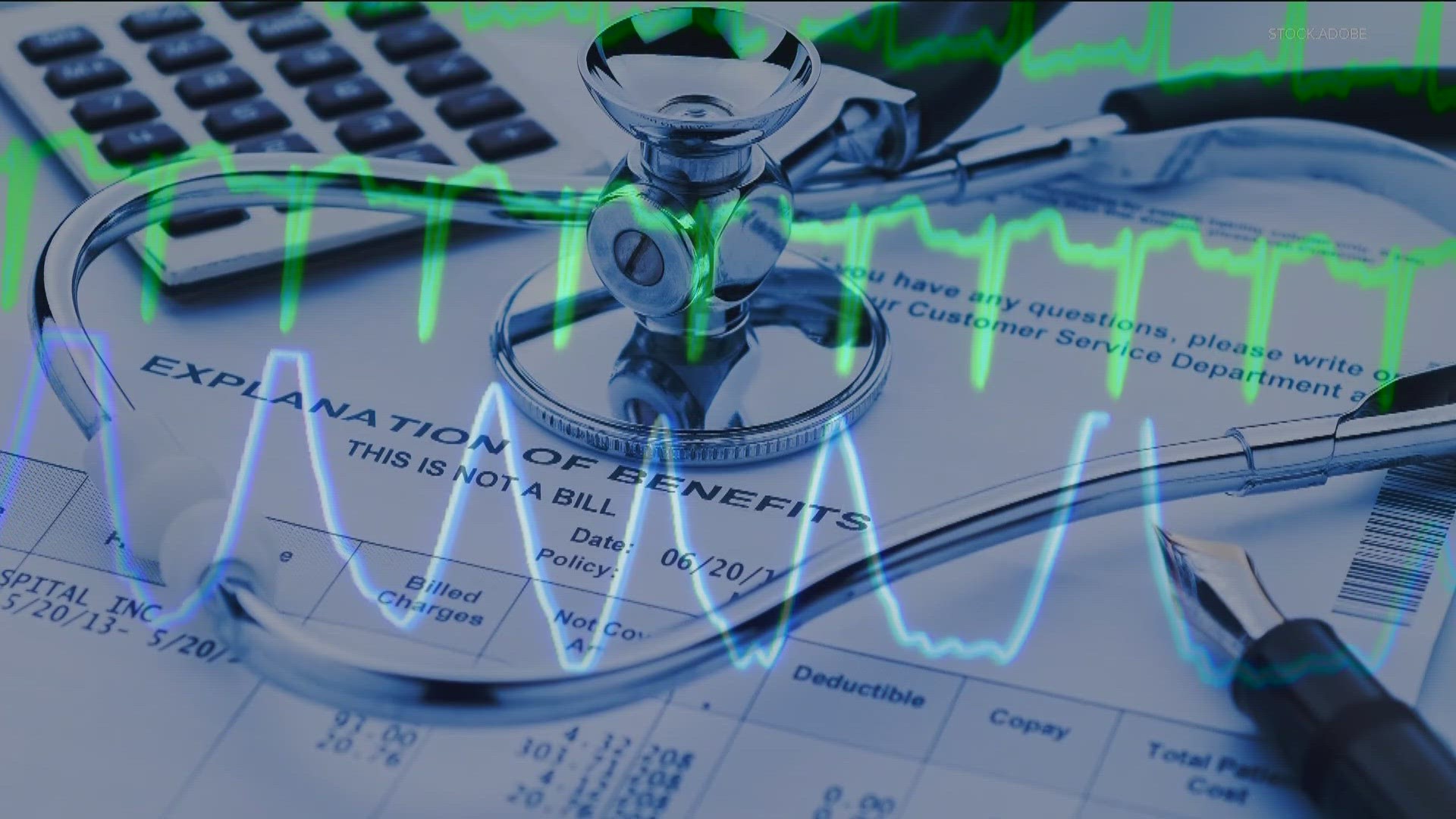ST PAUL, Minn. — A new law in Minnesota requires hospitals to screen patients for financial assistance eligibility before sending them into collections, in a move designed to tackle the growing problem of medical debt.
State Senator Liz Boldon (DFL-Rochester) led the effort last session to pass the bill, which took effect in November 2023. Under the law, hospitals may not enroll patients in payment plans or refer them to collections until determining whether they qualify for government insurance or hospital assistance. To keep tax breaks under nonprofit status, health systems are required to offer programs known as "charity care" to lower-income patients struggling to pay for medical services.
"What we saw happening across the state was, some patients need care, and they go to the hospital for care. They end up with a large bill, and in some cases were being taken to court, taken to collections for not being able to pay their bills," Boldon said, "when in fact they would have qualified for the hospital's own charity care program. They just didn't know about it."
The law does not change eligibility requirements for charity care programs. However, it gives hospitals 30 days to screen patients for charity care income qualifications, and if those patients are found to be eligible, they "must assist the patient with applying for charity care and refer the patient to the appropriate department in the hospital for follow-up." Hospitals cannot take action against patients while the application process is still pending.
The screening bill was passed last spring as part of a broader health spending bill. It did not receive as much attention as other issues during the busy legislative session, but during a committee hearing in March 2023, there was some debate on the topic among lawmakers and stakeholders. For example, while a Minnesota Hospital Association representative told lawmakers the organization supported some of the goals of the legislation, the MHA expressed concerns that it might conflict with an existing agreement between hospitals and the Attorney General's office.
"The attorney general's agreement was about collecting medical debt, standards for third-party collections and billing of uninsured patients," MHA Vice President for Government Relations Mary Krinkie said in March. "Getting the attorney general's authority over whether or not we've been able to schedule an appointment with a navigator, and some of the nuances of getting people enrolled in our public programs, is a little bit more in the minutia of what's not included at all in our attorney general's agreement."
Attorney General Keith Ellison, however, strongly supported the bill. In recent years, his office has investigated Allina Health and Mayo Clinic for issues related to billing and medical debt.
Although the percentage of Minnesota residents with medical debt is among the lowest in the country, Sen. Boldon told the committee last year that more than 750,000 Minnesota residents were in the medical debt collection system as recently as 2018.
"Medical debt is a huge problem. It's the number one cause of bankruptcy across the country," Boldon said. "Our hope is that this law makes a difference for some families, and it will. Some families who before were not able to pay those bills, or were very much struggling to pay those bills, will be able to take advantage of those charity care programs that were already out there."
Nick McLaughlin, the CEO of a Michigan-based company known as Breez Health, said Minnesota's new screening law resembles similar legislation passed in Illinois, Colorado, Oregon and Washington state.
"It's not completely unique," McLaughlin said. "I'm really bullish that the impact of more proactive financial assistance screening is going to put a meaningful dent in the medical debt burden for Minnesotans."
McLaughlin's company works directly with hospitals on their charity care programs, so that patients can understand them and navigate them more easily.
After working for 12 years in the hospital bill collections industry, McLaughlin said he has seen the impact of medical debt first-hand.
"What lawmakers really sought here and the need they were trying to address, was a similar challenge to why I started Breez," McLaughlin said. "A lot of patients qualify for financial assistance but they don't know these programs exist. It's one of the big causes of medical debt in our country, so, the law requires hospitals to more proactively assist in screening processes to help patients know if they qualify for certain discounts, before those medical bills start piling up."
Watch more local news:
Watch the latest local news from the Twin Cities and across Minnesota in our YouTube playlist:
WATCH MORE ON KARE 11+
Download the free KARE 11+ app for Roku, Fire TV, Apple TV and other smart TV platforms to watch more from KARE 11 anytime! The KARE 11+ app includes live streams of all of KARE 11's newscasts. You'll also find on-demand replays of newscasts; the latest from KARE 11 Investigates, Breaking the News and the Land of 10,000 Stories; exclusive programs like Verify and HeartThreads; and Minnesota sports talk from our partners at Locked On Minnesota.
- Add KARE 11+ on Roku here or by searching for KARE 11 in the Roku Channel Store.
- Add KARE 11+ on Fire TV here or by searching for KARE 11 in the Amazon App Store.
- Learn more about the KARE 11+ app for Apple TV in the Apple App Store.
- Learn more about KARE 11+ here.

